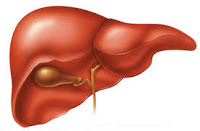The best explanation as to why the liver grows back sometimes seems to come down to two main factors.
The first factor comes from liver cells (called hepatocytes), which have a relatively high rate of division in response to acute injury. Their function allows them to replace the liver cells that have been damaged or are missing from the organ. They are similar to skin cells (fibroblasts and keratinocytes) that can regenerate, although in a slower manner. However, liver cells are different from heart cells (cardiomyocytes), as the latter has an exceptionally low rate of division. The liver cells are the only internal organ in the body that can regenerate, and this peculiar function is still being studied by researchers today.
The second factor is from the special type of liver regeneration helper cells named “hybrid hepatocytes.” These cells were recently discovered by a research group at UCSD, and they are said to facilitate the regeneration of liver cells while also reducing the risk of tumor formation, which can be the unfortunate side-effect of several attempts at regenerative therapies.
Does smoking affect the regeneration of the liver?
Smoking has negative effects on several parts of the body, especially on the lungs, but for the liver, smoking actually enhances the process of regeneration in its cells. When the liver is healthy, the regeneration of cells is usually slower, but when it receives too many harmful chemicals from drinking alcohol or smoking cigarettes, it will force itself to produce more cells to replace the damaged ones.
However, regeneration doesn’t mean that the liver can grow itself back to normal form, as the process couldn’t be done if the entire liver is damaged. The regeneration of cells only happens if there is partial damage, which means that chain-smoking can eventually cause the liver to be permanently damaged to the point that it cannot regenerate itself. Smoking can also increase the person’s chances of having liver cancer, as there may be instances where the cells will begin to regenerate abnormally, and in turn, cause the other abnormal cells to become cancer cells. Even though smoking speeds up the process of regeneration in the liver, that doesn’t mean that the unhealthy habit should be continued, as prolonged exposure to smoke can deal unresolvable damage to the liver.
Can the liver grow bigger or smaller?
The liver cannot grow any bigger, as it somehow knows its limits when it comes to its size. The liver only makes up about 3% of our body, and this percentage will remain constant even if you’re tall or short. The proportion of the liver also applies in liver transplants, as a big liver will eventually shrink to a smaller one if it is transplanted on a small person. How does the liver know when to stop growing? It knows by communicating with a system called hepatostat that sends signals to both the brain and the liver to stop the production of proteins, which are needed to build more cells. However, scientists are still baffled on how the hepatostat can control the signals, so we currently don’t have answers as to why livers would remain in their current size even if they regenerate constantly.
Can other cells regenerate as fast as liver cells?
Most scientists believe that the liver cells are the fastest regenerating cells in the body, and because of this amazing feat, a few researchers are trying to figure out if the regeneration process of the liver can also be applied to other cells. The liver cells also allow us to know more about normal and abnormal cell growth, and soon, we may be able to use the studies to control the growth of cancer cells in the body.
The liver is truly an interesting organ, as it has several features that are not found in any other organs. Despite numerous studies about the human body, the liver still remains a mystery for most scientists and doctors. In the near future, they may be able to unlock the secrets of the liver and utilize it to cure diseases or increase the lifespan of humans.

